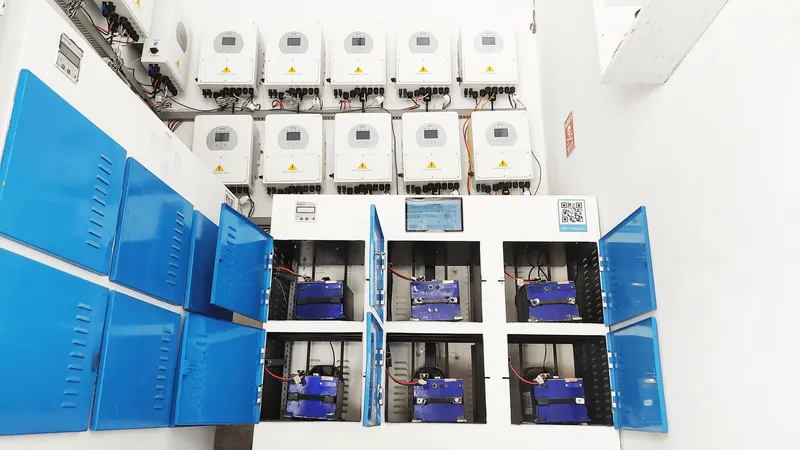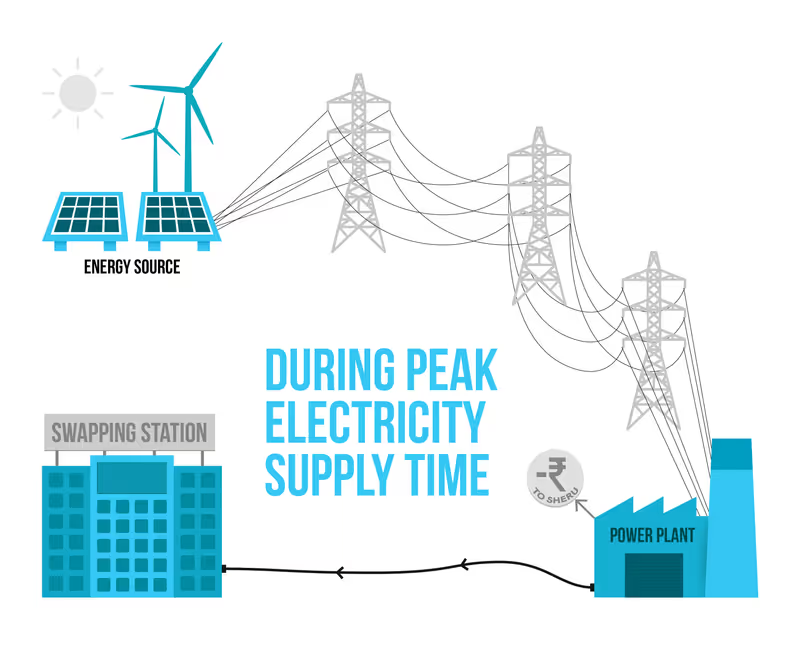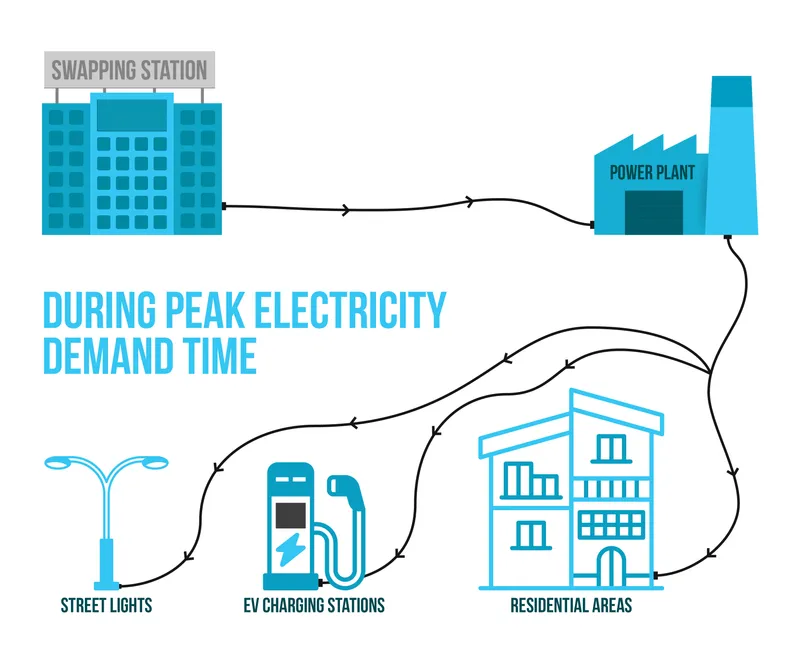How Sheru’s V2G tech can help support the grid as EV adoption grows
Founded in 2019 by Ankit Mittal, Nakul Mehan, and Shikhar Sharma, Sheru is a platform that offers energy storage and management solutions. It’s latest vehicle-to-grid technology is a revolutionary new step in e-mobility.
As the widespread adoption of electric vehicles gains pace, there is another problem brewing on the horizon—India’s potential to handle the shift efficiently.
In a comprehensive exploration of India's grid capacity and its potential to support electric vehicles by 2030, YourStory recently shed light on the situation. Our findings indicated that with the implementation of appropriate technologies to alleviate grid pressure, there is a possibility that the grid could indeed meet the demands of EVs.
One such technology is V2G, or vehicle-to-grid, and the first company in India to launch it for e-mobility is .
The Delhi-based battery technology startup made waves in the mobility sector recently when it unveiled its V2G tech platform, NetBat, and forged a strategic partnership with BSES Rajdhani, a prominent utility company.
This development holds significance for the mobility sector for two reasons:
- It signals that India’s mobility ecosystem has matured to the point where the community is actively trying to pre-empt grid issues, such as grid congestion, load balancing challenges etc, that may arise when lakhs of vehicles plug themselves to recharge.
- It helps alleviate concerns that policymakers and utility companies had regarding the potential strain on the grid due to the increasing presence of EVs.
V2G technology is particularly critical for countries aiming to electrify their mobility systems. It plays a vital role in balancing grid utilisation by allowing electric vehicles to not only consume energy but also contribute back to the grid during periods of low demand or when additional power is needed.
This bidirectional flow helps optimise grid utilisation, enhances grid stability, and maximises the benefits of integrating EVs into the energy ecosystem.

Sheru's V2G swapping station
The journey to V2G
In 2020, a year after it had launched its e-rickshaw ridehailing app, Sheru found itself in the middle of a pandemic with no demand for its service. The company had hoped to use its app to aggregate e-rickshaws on the platform and cross-sell battery services—its main business—but the lockdowns threw a wrench in its plans.
Realising that it would be cheaper to aggregate e-rickshaw services at retail outlets than on a consumer-facing app, Sheru decided to shutter the app and pivot to a model that focussed on partnering with retailers to extend battery swapping services.
“We realised that e-rickshaws tended to largely stay in the same neighbourhood throughout the day, and seldom ventured beyond a specific radius. We also found that retail stores often have unused space surrounding their premises, which they are willing to monetize if given the opportunity," Ankit Mittal, Co-founder and CEO of Sheru told YourStory.
It then launched SellBat, a battery subscription service that allows retailers to start offering swapping services. Using SellBat, any retailer could sign up, get a swapping station set up, and start offering services to e-rickshaw drivers.
The next step was optimising the batteries and ensuring they are used in the most effective way possible, with just a few tweaks. To do that, Sheru launched ScaleBat, a platform to monitor and optimise EV battery usage depending on its purpose and what it will likely be used for.
ScaleBat can also be used by banks and financiers to underwrite loans for EVs, says Mittal.
Finally, Sheru launched NetBat—a couple of months ago—in a bid to help monetise idle battery time of batteries, as well as help energy utilisation become more efficient.
NetBat’s bet on idle batteries
Fundamentally, NetBat is a cloud-based platform that utility companies can access. It is an interface between swapping stations and utility companies.
During specific times in the day, mainly when energy is cheap—for instance during the afternoon, when renewable energy production is high—utility companies can use the platform to “buy” storage space on EV batteries connected to the swapping station, and use them to store any excess energy.

Illustration shows the potential of EV batteries in swapping stations, enabling utility companies to store energy during peak electricity production
During peak demand times, the utility company can tap into the energy it has stored throughout the day, and direct it to wherever demand is high.
"By tapping into the energy they've stored throughout the day during peak demand times, utility companies can not only save money but also make the most efficient use of their energy resources,” says Mittal.
Sheru receives payment on a per-unit basis from the utility company. Currently, each battery has the capability to store 3 kilowatt hours of energy. The overall infrastructure presently has a capacity of 20 megawatt-hours.
The platform also allows other companies that have swapping stations to sign up for the V2G programme and start monetising their batteries’ downtime. In the case of third-party swapping stations, Sheru splits any revenue.

While new swapping stations come fitted with hardware that allows the bidirectional flow of energy, existing stations can be retrofitted with a small device—an electronic energy vending machine provided by Sheru—to make them V2G-ready.
In the future, Sheru plans to extend the technology to four-wheelers and large EVs such as trucks and buses.
Sheru’s NetBat is only operational in Delhi at the moment, but we’re talking to multiple large public and private utility companies across the country to bring this tech to the EV ecosystem, says Mittal.
The startup has raised $1.06 million in funding from investors including AdvantEdge, , and Climate Angels, among others, according to Tracxn. The data analytics website said that its post-money valuation after its June 2021 round was $3.4 million.
Sheru plans to raise another round this year and is already in talks with investors.
(Graphics and Cover Image by Nihar Apte)
(The copy was updated to add infographics)
Edited by Akanksha Sarma







